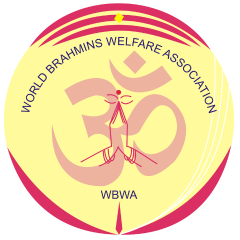The status and perception of Brahmins in Indian society have evolved over centuries, and it’s important to recognize that opinions on this matter can vary widely. The historical role and contributions of Brahmins in various fields, including philosophy, science, and literature, are acknowledged by many. However, the contemporary challenges faced by Brahmins in some regions are complex and can be influenced by socio-economic factors, politics, and changing societal norms.
In ancient India, Brahmins were traditionally regarded as the priestly class and were highly respected for their knowledge, wisdom, and contributions to various intellectual and cultural domains. They played a significant role in preserving and transmitting knowledge through the oral tradition and later through written texts. Many ancient texts, including the Vedas, Upanishads, and other philosophical treatises, were authored or preserved by Brahmins.
Over time, societal dynamics have changed, and perceptions of different social groups have shifted. In some cases, Brahmins have faced challenges related to issues such as reservation policies, economic disparities, and changing educational landscapes. This has led to debates and discussions about social justice and equity in contemporary India.
It’s essential to note that generalizations about any social or cultural group can be oversimplified, and there is a wide diversity of opinions and experiences within any community. Many Brahmins continue to make significant contributions to various fields, and their impact on India’s cultural and intellectual heritage is acknowledged by scholars and individuals alike.
Public awareness and education about the rich history and contributions of different communities can contribute to a more nuanced understanding of India’s diverse social fabric. Initiatives that promote dialogue, inclusivity, and mutual respect can help bridge gaps and foster a more harmonious coexistence within the diverse Indian society.
The concerns you raise regarding the perceived marginalization of the Brahmin community over the last few decades reflect broader discussions on social, economic, and political dynamics in India. Addressing such concerns requires a nuanced and inclusive approach that promotes dialogue, understanding, and collaboration among different communities.

Established in 2014 by a group of distinguished Brahmin individuals, WBWA is a non-profit organization committed to the well-being of Brahmins worldwide.
Our mission is to address the problems and suffering of Brahmins by advocating on their behalf with relevant authorities and forums. We aim to foster a sense of unity and pride within the Brahmin community, working towards their overall welfare.
At WBWA, we are passionate about making a positive impact on the lives of Brahmins and are dedicated to promoting their prosperity and success.

WBWA serves the needy members of the community in a selfless and inspirational manner by providing resources for their overall development which includes education, skill building, entrepreneurship, welfare and value based cultural life, on a sustainable basis.

Our goal is to create a sustainable impact on the lives of Brahmins those in need, empowering them to thrive and succeed and contributing positively to society and inspiring future generations.
Here are some potential action points and considerations that could contribute to fostering positive change:
